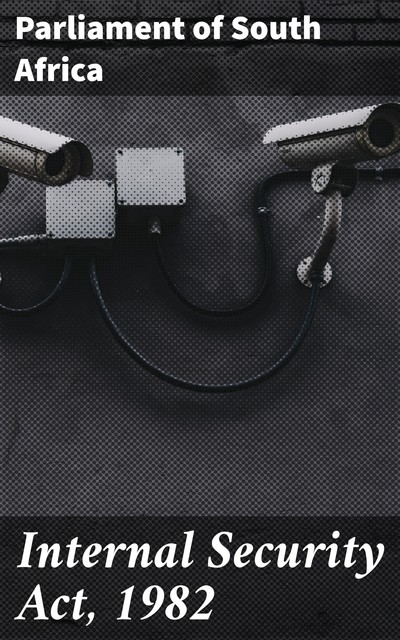Ми використовуємо файли cookie для покращення якості роботи сайту Bookmate та наших рекомендацій.
Для отримання додаткової інформації ознайомтеся з нашою Політикою щодо файлів cookie.
Для отримання додаткової інформації ознайомтеся з нашою Політикою щодо файлів cookie.
Прийняти все cookies
Налаштування файлів cookie
Щось трапилось. Спробуйте ще раз.
The “Internal Security Act, 1982” is a pivotal piece of legislation that reflects the political tensions and societal unrest in South Africa during a tumultuous period. The Act serves as a legislative framework designed to empower the government to counter perceived threats to state security, encompassing a range of provisions from censorship to preventive detention. Its language is formal and authoritative, characteristic of legal texts, yet it encapsulates the broader socio-political discourse of the time, illustrating the struggle between state security and individual rights. In its historical context, it stands as a testament to the complex interplay of law and governance amid the resistance movements that were burgeoning against the apartheid regime's oppressive measures. The Parliament of South Africa, as the author of this critical document, mirrors the governmental structure rooted in a deeply divided society. The passage of the Act was undoubtedly influenced by ongoing conflicts, local uprisings, and international condemnation, pushing the government to justify sweeping powers to maintain order. This Act not only reflects the fears of those in power but also the lengths to which they would go to suppress dissent and control the narrative of South African identity during this era. This book is indispensable for scholars, historians, and students seeking to understand the legal mechanisms behind the apartheid regime's security policies. It serves as an essential resource for examining the implications of such legislation on civil liberties and rights, provoking further inquiry into the legacy of laws that shaped modern South Africa. Its significance endures, making it a crucial read for those interested in human rights, sociology, and political science.
більше
107 паперових сторінок
- Правовласник
- Bookwire
- Дата публікації оригіналу
- 2021
- Рік виходу видання
- 2021
- Видавництво
- Good Press
Уже прочитали? Що скажете?
👍👎
fb2epub
Перетягніть файли сюди,
не більш ніж 5 за один раз


